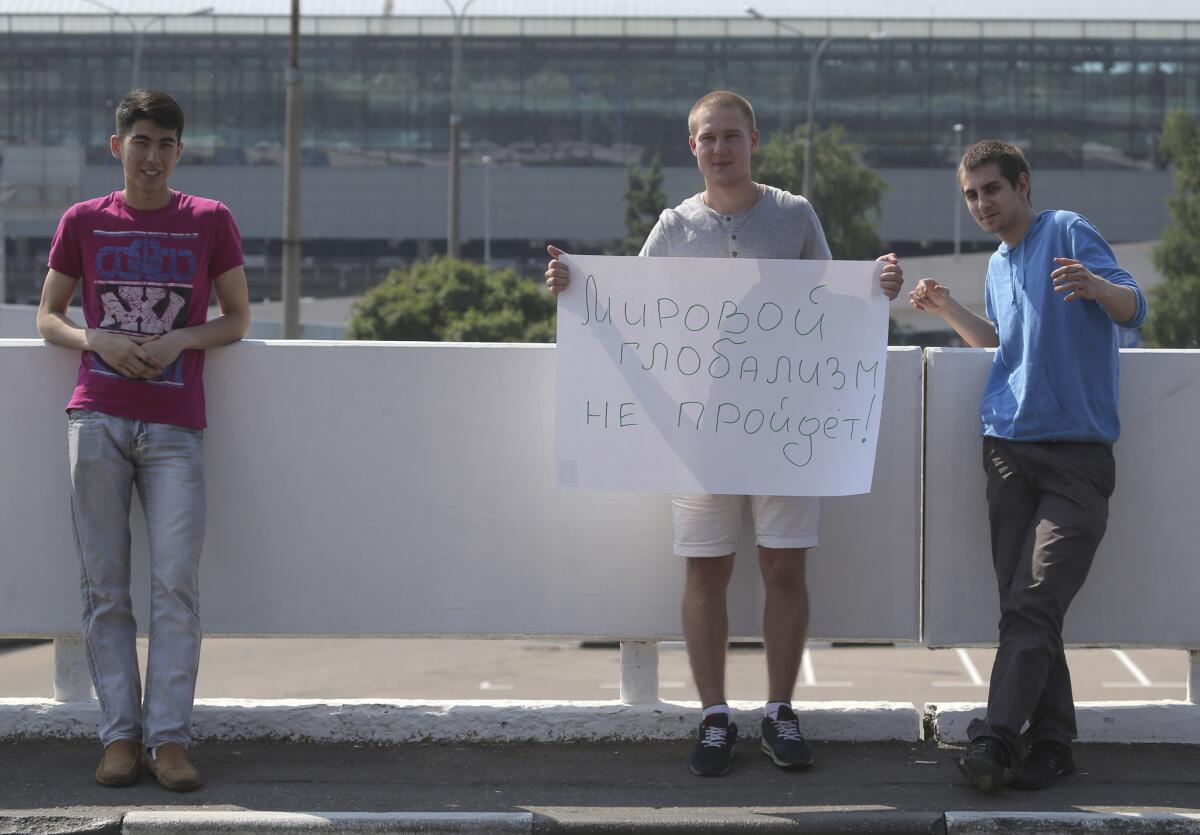Terrorists harder to track after Snowden’s leaks, officials say

WASHINGTON — Suspected terrorists have changed how they communicate and have become more difficult to track as a result of former contractor Edward Snowden’s disclosures about U.S. surveillance operations, according to current and former officials who say that the changes have led to a significant loss of intelligence.
How much that loss amounts to remains unknown as the government’s classified assessment is continuing, they said.
In addition, Snowden’s disclosures about eavesdropping in Russia and China gave each of those countries insights that are already thought to have impaired the National Security Agency’s ability to intercept their communications, the officials said.
Among the disclosures from Snowden that were published in the Washington Post and the Guardian was that Skype, the Internet calling service, was among the systems that provided data to the NSA’s secret PRISM database. That disclosure contradicted a widespread belief that calls made via Skype were difficult or impossible to intercept.
Some alleged terrorists the NSA was tracking are no longer using Skype, U.S. officials say. Others have stopped using email, said one U.S. official who has been briefed on the damage.
“The Skype thing was really bad,” the official said.
The inability to use such common communications systems creates problems for terrorist groups by reducing their ability to share plans and coordinate, but it also costs intelligence agencies information, the official said.
Osama bin Laden had been savvy enough to take extreme measures to avoid emitting an electronic signature: his compound in Abbottabad, Pakistan, had no Internet or phone service, and his couriers took the batteries out of their cellphones when they approached within miles of the location.
Most rank-and-file militants either can’t afford to be that careful or have simply not tried to, the official said. The disclosures about the NSA’s ability to track phone calls and email are changing that to some extent, the official said.
On the foreign intelligence side, government officials are continuing to try to determine how much specific information Snowden knew about the methods the U.S. uses to eavesdrop on other countries. Former counterintelligence officials say they believe there has already been serious damage, and fear it could worsen, depending on what Snowden had.
Counterintelligence officials say they believe that whatever information Snowden has with him probably has fallen into the hands of Chinese or Russian intelligence or both by now. Snowden spent several weeks in Hong Kong before flying to Moscow on Sunday.
According to the Guardian, Snowden gave the newspaper a document showing that the NSA had intercepted the communications of then-Russian President Dmitry Medvedev during his visit to Britain for a Group of 20 summit in London in 2009.
“They’ve got to assume now that we have either stolen or broken their codes,” said Joel Brenner, a former senior NSA lawyer who also was the nation’s top counterintelligence official from 2006 to 2009.
“It would have taken years to do that, and those accesses, you can be sure, have already disappeared. The Russian diplomatic traffic has gone dark on us now, you can be sure of that,” Brenner said.
Snowden also disclosed in an interview with the South China Morning Post the specific dates and the IP addresses of computers in Hong Kong and on the Chinese mainland hacked by the NSA over a four-year period, the paper said.
One target was Chinese University, Snowden said, which houses a central hub of servers through which all Web traffic in the city passes.
“He’s also told the Chinese that we’re into specific institutions,” Brenner said. “He’s told them implicitly a great deal about our capabilities that they didn’t know. This kind of disclosure has serious consequences.”
The idea that U.S. intelligence agencies “archive and capture phone number and email address transactions with known bad guys and U.S. citizens” will not be a surprise to foreign intelligence services, said another former counterintelligence official who spoke on condition of anonymity to discuss classified matters.
“What I’m more worried about is what else Snowden knows about how we do this; does he know the location of international telecommunication nodes and portals for U.S. telecom? How about undersea cable locations? Does he know anything about the technology used to capture this data without even involving the U.S. telecom companies?”
Russia and China, the official said, work together to “actively try to learn this kind of information.”
ALSO:
Fears of bloodshed in Egypt as protests begin
Death toll in Xinjiang violence rises to at least 35
In Senegal, Obama touts U.S. initiatives to end hunger
More to Read
Start your day right
Sign up for Essential California for news, features and recommendations from the L.A. Times and beyond in your inbox six days a week.
You may occasionally receive promotional content from the Los Angeles Times.







